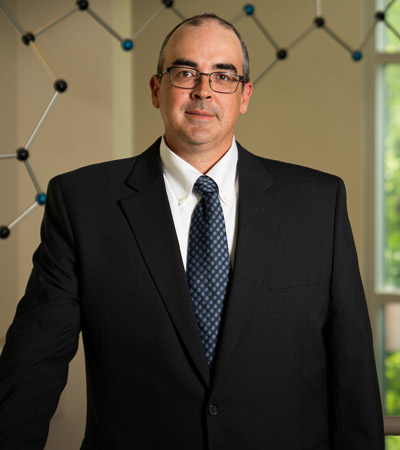
Ryan E. Looper arrived at the U in 2007 after completing post-doctoral studies at Harvard University and his doctorate at Colorado State University. Since then he has received a Henry Eyring Assistant Professorship, Young Investigator Awards from Amgen and Eli Lilly, and the U’s Entrepreneurial Faculty Scholar award. His research program focuses on the behavior of small molecules within biological systems, with the aim to develop compounds that can affect cell signals. These signals, in turn, play roles in diseases including arthritis, multiple sclerosis and cancer. Looper and his lab are looking to understand the effects of these small molecules in order to expand and improve researchers’ biochemical toolbox. Looper is also working to develop new classes of antibiotics, desperately needed in our fight against multi-drug resistant infections, and learning more about how molecules bind to bacterial RNA in the process.
Looper is one of six awarded faculty chairs, all contributing to significant research in health sciences. The Jon M. Huntsman Presidential Chairs were gifted by the Huntsman Foundation beginning in 2017 and provide sweeping support to academic researchers, educators, and clinicians spanning a wide array of fields. The faculty members selected have demonstrated excellence in research, clinical care and career progression. They reflect diverse academic disciplines, with appointments in human genetics, neurosurgery, nursing and biomedical informatics, chemistry, ophthalmology and neurobiology and anatomy.
Having this designation align with the school’s recruitment efforts will allow the university to attract the very best national talent. “We are extremely proud of the work these outstanding individuals have already conducted in their areas of research and expertise,” said Michael L. Good, M.D., dean of the U’s School of Medicine, senior vice president for health sciences and CEO of U of U Health. “Through the generosity and leadership of the Huntsman Foundation, the impact that these presidential chairs will continue to have on research and clinical care will be felt for generations to come.”
The newly announced appointments are for a five-year term, from July 1, 2019, through June 30, 2024, with the possibility of one five-year renewal.
